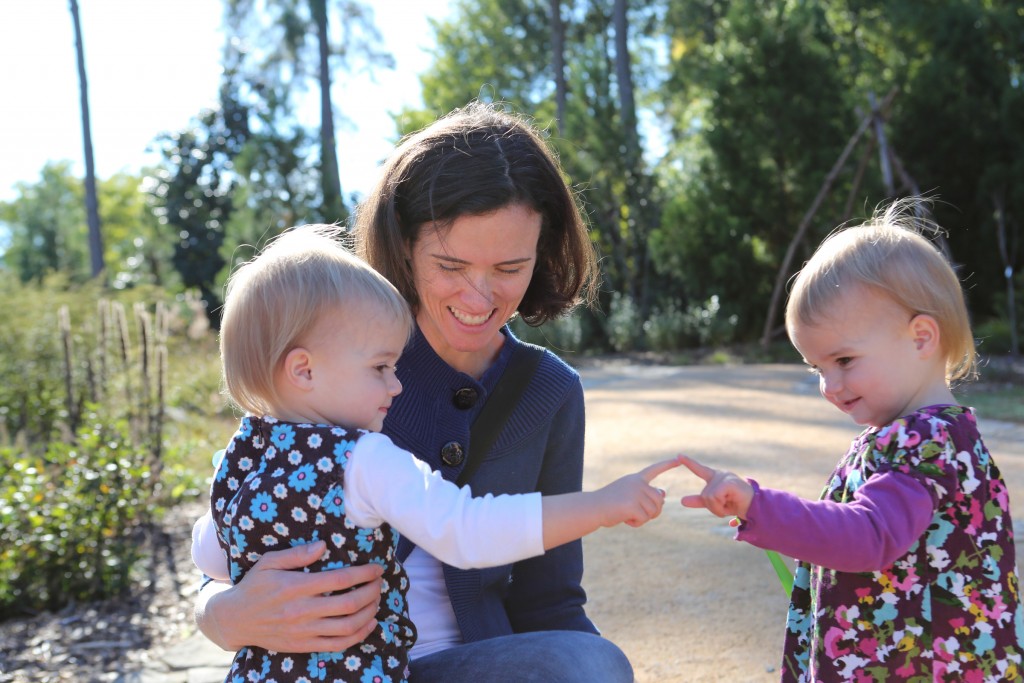
Karen Goldstein, MD, MSPH
July will be a banner month for the subject of this week’s faculty spotlight, Karen Goldstein, MD, MSPH. In July, she will receive funding to begin a five-year research project to examine peer-support interventions for female veterans at risk for coronary disease. In this interview, Goldstein talks about her other work with female veterans, how her previous experience working with people living with HIV/AIDS informs her current work, and how risk factors for cardiovascular disease vary between veteran and non-veteran populations.
How long have you been at Duke? How long have you been at the division of General Internal Medicine?
I have been back at Duke since 2011, though I was a medical student here and graduated in 2004. I returned to Durham in 2010 initially to the Durham VA and then shortly thereafter reconnected with Duke, receiving a faculty appointment in 2011.
What are your responsibilities within the division? What does a typical day for you look like?
My clinical work is based at the Durham VA, primarily in the women’s health clinic where I am the medical director. I have also taught Duke internal medicine residents in the VA PRIME clinic since 2011. I currently have a Duke medical student who works with me in the women’s health clinic.
In my other hats, I am the Durham site lead for the VA women’s health practice based research network. This is a national network started in 2010 to develop the capacity to support multi-site research studies and quality improvement projects designed to include and address the health needs of women veterans. I am also a research associate in the Durham HSR&D and am currently a co-investigator on multiple projects. I also work nationally with the VA women’s health services on women’s health education projects including the VA women’s health mini-residency interprofessional track that trains providers and nurses together to provide high quality primary care for women veterans.
One of your clinical areas of interest is primary care for people living with HIV. How did you get involved in this area? How does this area of study tie into your other interests?
Before coming back to Duke, I worked in a community-based HIV clinic in Philadelphia as a certified HIV specialist. I was drawn to this population by the social challenges that people living with HIV face and how these challenges affect their health behaviors and health care.
I see many parallels in this area with women veterans. One research area I’ve been particularly interested in lately is peer support for women veterans and how peer support interventions can support positive health behavior change in this population. In fact, I first developed this interest area while working with HIV positive patients.
You were also the lead author of a study examining racial and gender differences in risk factors for heart disease among veterans. What were the major findings of this study? How do veterans’ risk factors for CVD compare to those of the general population?
We found that overall, female veterans had significantly higher LDL cholesterol levels than male veterans despite being almost ten years younger, on average. These differences are similar to gender disparities previously reported both within and outside the VHA and represent a clinically significant difference. There was no difference in LDL levels between African-American and white women. We also saw that female African-American veterans had worse control of both systolic and diastolic blood pressure. Among veterans with diabetes, male African-Americans had worse control of higher blood pressure and HbA1c levels than white males.
Compared with non-veteran women, veteran women have higher rates of CVD risk factors including smoking, obesity as well as non-traditional risk factors such as depression. In addition, women veterans have less social support than male veterans. So, further exploration of racial differences in gender disparities among the veteran population would help us identify contributing factors and highlight areas of importance for future interventions.
You just received funding for a five-year career development award which will examine peer-support interventions for female veterans at risk for coronary disease. How did the idea for this research come about?
The idea stemmed from two things. First, veterans come naturally to the idea and motivation to help each other. Even when faced with serious health problems, they have a lot to offer each other. Helping support fellow veterans is an instinct that calls upon the training during their service years. It also offers the helper something as well as the one who is helped. Second, I saw the importance of this type of support first hand when I worked in that urban HIV primary care clinic in Philadelphia. It isn’t enough for me to prescribe medications or given the best possible medical advice. Patients also need someone that they that can relate to in order to put that advice into action.
What passions or hobbies do you have outside of the division?
Currently my hobbies are centered around my three girls all under the age of 7, but I enjoy hiking and kayaking when I have time!
Have you recently read any books, articles, blog posts or other material that would be of interest to the division?
Actually one interesting article I just read is by another Duke colleague, Damon Tweedy, MD (psychiatry). It was an opinion piece in the New York Times titled, “the case for black doctors.” I think it raises interesting questions about what is needed to best support and care for vulnerable populations in this country.

Karen Goldstein enjoys a moment with two of her three children.
